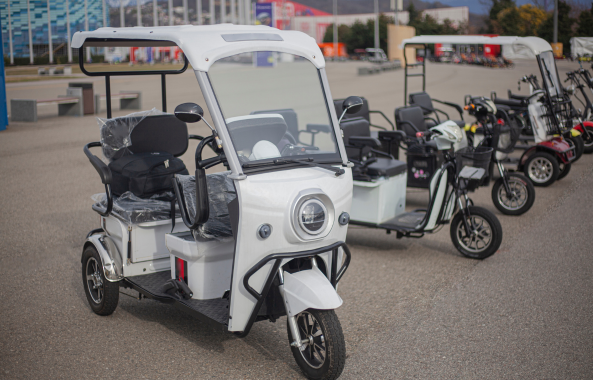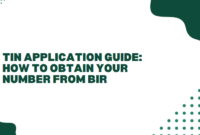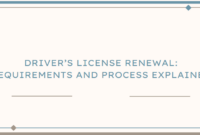The rise in popularity of electric bikes in the Philippines has sparked curiosity about the legalities surrounding their use, especially the need for a license. With traffic congestion becoming a daily challenge, many commuters are turning to e-bikes as a more practical and eco-friendly alternative. However, before hitting the road, it’s essential to understand whether an E-Bike License in the Philippines is necessary, along with the steps to comply with government regulations.
Navigating the rules for e-bike registration and licensing can feel overwhelming, but it’s a critical step in ensuring both safety and legality on public roads. With numerous categories of electric vehicles and varying speed capacities, knowing where your e-bike fits in is key. This article explores the current regulations and provides clarity on whether or not you need an E-Bike License in the Philippines to ride confidently and legally.

Electric motorcycles and scooters are becoming increasingly popular, and it’s no surprise given the constant traffic congestion and parking difficulties in many urban areas. In the Philippines, these light electric vehicles have emerged as a practical solution, offering a more economical, environmentally friendly, and convenient alternative to conventional transportation.
If you’re considering purchasing one, you might be wondering whether owning an electric bike requires a license in the Philippines. This article provides important information to help you navigate the legal requirements surrounding e-bikes and e-scooters in the country.
Are E-Bikes Legal in the Philippines?
Electric bikes and scooters are indeed legally available for purchase in the Philippines, with numerous brands providing a wide range of options through both online platforms and physical retail stores. As the demand for these eco-friendly modes of transportation continues to grow, consumers have an increasing number of choices to suit their needs, whether for commuting, leisure, or errands. The convenience and versatility of electric bikes make them an appealing alternative to traditional vehicles, especially in urban areas facing traffic congestion.
However, it’s important to note that electric bikes and scooters are not exempt from regulations. Like all vehicles, they must adhere to the guidelines established by the Land Transportation Office (LTO). This ensures that these vehicles meet safety standards and are fit for public use. Compliance with these regulations helps to protect riders and pedestrians alike, fostering a safer environment for all road users.
To navigate the legal landscape effectively, prospective e-bike owners should familiarize themselves with the specific requirements for registration and licensing. By understanding the regulations set forth by the LTO, consumers can make informed decisions when purchasing an electric bike or scooter, ensuring that they enjoy the benefits of these innovative vehicles without running into legal complications. As the popularity of electric mobility continues to rise, awareness of the associated rules will play a crucial role in promoting safe and responsible riding practices across the Philippines.
Is a License Required for E-Bikes in the Philippines?

Under LTO Administrative Order, electric vehicles used on public highways must be registered. This policy updates previous regulations, such as Administrative Order. If you plan to use your e-bike on public roads, you need to register the following types of electric vehicles:
- Personal Mobility Scooters – Intended for short-distance travel within local areas.
- Electric Kick Scooters – Typically operated while standing but can come with a seat.
- Category L1a E-Vehicles – Maximum speed of up to 25 km/h.
- Category L1b E-Vehicles – Speed range of 26 to 50 km/h.
- Category L2a and L2b E-Vehicles – Similar speed range as L1a and L1b but different structural classifications.
- Category L3, L4, L5, L6, and L7 E-Vehicles – Covering e-motorcycles, e-tricycles, and e-quads.
The requirement for a license is supported by safety concerns. For instance, last year, the Land Transportation Franchising and Regulatory Board (LTFRB) recorded 556 e-bike crashes in Metro Manila alone. Licensing ensures that drivers meet basic qualifications, reducing risks on public roads.
Additionally, riders of two-wheeled electric vehicles must wear helmets similar to those required for conventional motorcycles to ensure their safety.
Exceptions to Registration Rules
Electric vehicles intended solely for use on private roads, like those found in residential subdivisions, are not required to register with the Land Transportation Office (LTO). This exemption allows homeowners and residents to enjoy the convenience of electric mobility without the additional paperwork and fees associated with public road registration. As long as these vehicles remain within the confines of private property, they can operate freely, contributing to a more sustainable environment.
However, it’s important for users of electric vehicles on private roads to be aware of any community rules or regulations that may apply. Homeowners’ associations or local governing bodies might have specific guidelines regarding the operation of these vehicles within their jurisdictions. Adhering to these rules ensures a harmonious coexistence among residents while promoting safety and responsible use of electric mobility solutions within private communities.
Can E-Bikes Be Driven on Major Roads Like EDSA?
While registration allows you to use your e-bike on public roads, it is important to note that certain major roads are off-limits. Starting April, MMDA Regulation No. 24-022 bans e-bikes, e-trikes, and similar vehicles from traveling on national highways, radial, and circumferential roads in Metro Manila. Roads where electric vehicles are prohibited include:
- EDSA
- Roxas Boulevard
- Shaw Boulevard
- Commonwealth Avenue
- España Boulevard
- Taft Avenue
Violators face fines of up to ₱2,500, and those driving without a license could see their e-bike impounded. However, a grace period has been implemented, during which violators will only receive warnings to raise awareness of the new rules.
How to Register Your E-Bike with the LTO
To register your e-bike, you’ll need the following documents:
- Certificate of Stock Reported (CSR) from your dealer
- Original sales invoice
- Original clearance from the Philippine National Police Highway Patrol Group (PNP-HPG)
- Insurance Certificate of Cover (also known as TPL)
- Proof of roadworthiness
Once you’ve gathered these documents, visit the nearest LTO District or Regional Office to submit them. You’ll be informed of the applicable fees, and once paid, you’ll receive an Official Receipt (OR) and a Certificate of Registration (CR). Keep in mind that the LTO may refuse registration if your vehicle doesn’t meet safety or design standards.
E-Bike Safety Tips
Simply owning a license and registering your e-bike isn’t enough—you must take additional steps to ensure safety while on the road. Consider the following:
- Wear an Approved Helmet – Choose a helmet that fits comfortably and offers adequate protection.
- Follow Local Regulations – While your e-bike may be registered, local areas may have specific rules, such as designated lanes.
- Avoid Overloading – Don’t exceed your e-bike’s passenger or weight capacity.
- Inspect Your Bike Regularly – Check the battery, tire pressure, lights, and brakes before every trip.
- Avoid Riding in Bad Weather – Rain can make roads slippery, increasing the risk of accidents.
- Be Extra Cautious at Night – Use lights and reflective gear to increase visibility.
- Don’t Listen to Music While Riding – Stay alert by avoiding distractions like headphones.
Conclusion
Goldpriceph.com – Electric bikes offer an efficient and eco-friendly alternative for running errands or commuting, making them an appealing choice for many. However, it’s essential to comply with local rules and regulations to ensure both your safety and that of others on the road. This includes registering your e-bike with the proper authorities and obtaining a license if required, depending on the type of electric vehicle you own. While this process might seem inconvenient, it serves as a safeguard, ensuring that your vehicle meets safety standards and is suitable for public roads.
By adhering to these legal requirements, you can avoid hefty fines and the risk of having your vehicle impounded. Moreover, compliance helps create safer road conditions for everyone, reducing accidents and ensuring that only qualified individuals operate electric bikes in public spaces. Following these regulations not only keeps you on the right side of the law but also contributes to the overall safety and efficiency of transportation networks.





